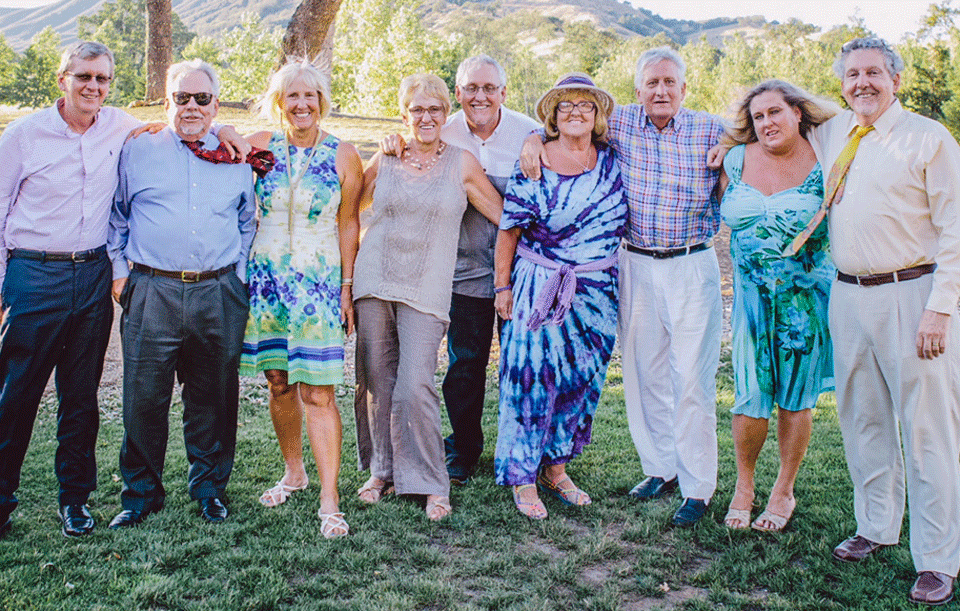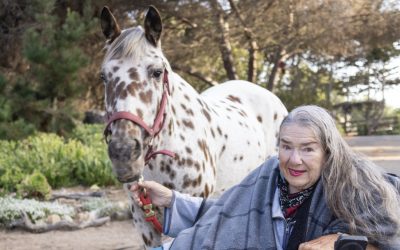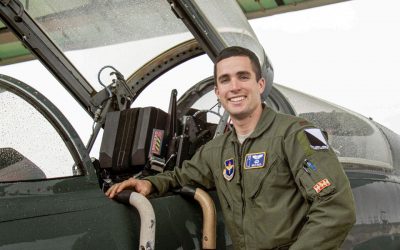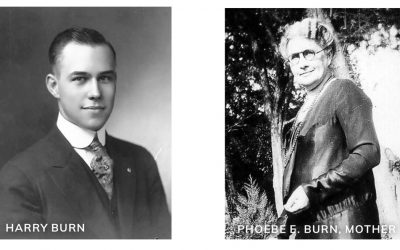When I was in my mid-20s, my brother Wayne and I often joined our friends at the Hofbrau restaurant on the Embarcadero in Morro Bay. Looking out on the calm bay with pelicans gliding by overhead and the moored boats pointing out the direction of the swelling tide, we would enjoy the craft beers while verbally jousting with friends. At the time, I knew little about the van Beurden family except that they made the best roast beef sandwiches I had ever tasted. Cornelius van Beurden would usually retire after the dinner rush and leave his sons to clean up and close. The van Beurden brothers Joost, Stan, and Paul were always upbeat, personable, and warm-hearted individuals. Their Dutch-driven
work ethic resulted in them being on duty almost constantly, yet they greeted us locals enthusiastically, knew almost everyone’s name and were adept at striking up a conversation with visitors from all over the world. Such was the family atmosphere they created; as a result, we just kept returning. Tragically, Joost was killed in a car accident in 1978 on Los Osos Valley Road.
What I didn’t know then, I know now thanks to Marge van Beurden who (via a recent interview) graciously shared her family’s fascinating yet arduous history. It begins with Cornelius van Beurden and his wife Mary. As a young man, Cornelius joined the Dutch Army and was promptly stationed in Indonesia. His future wife, Mary Teurlings, was still in Holland, and the only way she could join Cornelius was if they were married, so Cornelius’s brother Harry served as a proxy for his absent brother and soon Mary and Cornelius were legally married. Afterward, Mary caught the next ship to Indonesia to join her husband.
Once there, Mary gave birth to her first boy, Cle, in 1940 and Bill soon followed in 1941. Cornelius became an officer and life was good … for a while.
However, WWII was looming and soon the Japanese invaded and took over Indonesia. Cornelius lost his position and was forced into slave labor building the railroad near Sumatra. Pregnant Mary was placed into a concentration camp with her two boys. Once again, Mary and Cornelius were separated.
What I didn’t know then, I know now thanks to Marge van Beurden who (via a recent interview) graciously shared her family’s fascinating yet arduous history. It begins with Cornelius van Beurden and his wife Mary. As a young man, Cornelius joined the Dutch Army and was promptly stationed in Indonesia. His future wife, Mary Teurlings, was still in Holland, and the only way she could join Cornelius was if they were married, so Cornelius’s brother Harry served as a proxy for his absent brother and soon Mary and Cornelius were legally married. Afterward, Mary caught the next ship to Indonesia to join her husband.
Once there, Mary gave birth to her first boy, Cle, in 1940 and Bill soon followed in 1941. Cornelius became an officer and life was good … for a while.
However, WWII was looming and soon the Japanese invaded and took over Indonesia. Cornelius lost his position and was forced into slave labor building the railroad near Sumatra. Pregnant Mary was placed into a concentration camp with her two boys. Once again, Mary and Cornelius were separated.
Mary also suffered. She slept on a cot, used an open trench for a toilet, scrounged for scraps of food to feed her toddlers, and was responsible
for tending the dead bodies that were quickly piling up as the war progressed. During this misery, she gave birth to a baby girl—also named Mary. Mother Mary had the foresight to sew jewelry into the seams of her dresses to later be used to bribe guards for food. Unfortunately, she was eventually caught and beaten severely, but she never broke nor lost hope.
In August 1945, the war ended. The Japanese officers received orders that instructed them to kill all prisoners of war; fortunately, the orders did not make it to a few of the smaller islands. Nevertheless, the Japanese gave their weapons to the Indonesians who slaughtered many of the Dutch people—severing their body parts and casting them into the river to float downstream.
By 1946, Mary was not sure her husband was even alive, but with the help of the Red Cross, they were soon reunited and boarded a refugee freighter headed back to Holland. After arriving in Rotterdam, Joost was born in 1947, Iris in 1948, Marge in 1950, Leon in 1951, Stan in 1953, and Paul in 1954. Paul was two years old when the family found passage on a ship from Rotterdam to Ellis Island. From New York, the family of ten took a 4-day train ride across the country to Fresno where Anja was born in 1959.
for tending the dead bodies that were quickly piling up as the war progressed. During this misery, she gave birth to a baby girl—also named Mary. Mother Mary had the foresight to sew jewelry into the seams of her dresses to later be used to bribe guards for food. Unfortunately, she was eventually caught and beaten severely, but she never broke nor lost hope.
In August 1945, the war ended. The Japanese officers received orders that instructed them to kill all prisoners of war; fortunately, the orders did not make it to a few of the smaller islands. Nevertheless, the Japanese gave their weapons to the Indonesians who slaughtered many of the Dutch people—severing their body parts and casting them into the river to float downstream.
By 1946, Mary was not sure her husband was even alive, but with the help of the Red Cross, they were soon reunited and boarded a refugee freighter headed back to Holland. After arriving in Rotterdam, Joost was born in 1947, Iris in 1948, Marge in 1950, Leon in 1951, Stan in 1953, and Paul in 1954. Paul was two years old when the family found passage on a ship from Rotterdam to Ellis Island. From New York, the family of ten took a 4-day train ride across the country to Fresno where Anja was born in 1959.
“The Catholic Charities made all the difference for us; they sponsored us, found us shelter, clothes, and work. Without their help, I am not sure what we would have done. Our family still donates to those organizations today,” stated Marge during our interview. “We were placed in a tract home: parents in one bedroom, 3 boys in another, 3 girls in the last bedroom, and the two oldest boys, Cle and Bill, slept in the garage.”
The family’s struggles were not over. There were nine children to feed, so Cornelius rose at 4 a.m. to deliver newspapers and then drove to Our Lady of Victory parochial school to serve as day custodian until the evening when he worked as an accountant. He also joined the Knights of Columbus, and sang in the church choir. Meanwhile, Mary cleaned homes for a realtor who worked the family at slave labor wages, but there was not much choice, so the family worked and saved what they could. Mary started her own informal business by ordering Dutch wares from Holland and selling them to local Dutch families.
In 1964, Cornelius found a better job in the Yosemite Valley working for Degnan’s—a company that sold Irish soda bread. Soon, Cornelius and Mary were managing a bakery, smorgasbord restaurant, gift shop, and grocery store. Meanwhile, Marge and her three sisters stepped up on several levels ensuring their family’s success while their parents worked.
In 1968, Cornelius and Mary purchased the Frasier Motel and coffee shop in North Morro Bay for around $115,000—and now, here I am writing this article on the incredible van Beurden family on their 50th Anniversary of arriving in Morro Bay. Cornelius sold the motel in 1972
The family’s struggles were not over. There were nine children to feed, so Cornelius rose at 4 a.m. to deliver newspapers and then drove to Our Lady of Victory parochial school to serve as day custodian until the evening when he worked as an accountant. He also joined the Knights of Columbus, and sang in the church choir. Meanwhile, Mary cleaned homes for a realtor who worked the family at slave labor wages, but there was not much choice, so the family worked and saved what they could. Mary started her own informal business by ordering Dutch wares from Holland and selling them to local Dutch families.
In 1964, Cornelius found a better job in the Yosemite Valley working for Degnan’s—a company that sold Irish soda bread. Soon, Cornelius and Mary were managing a bakery, smorgasbord restaurant, gift shop, and grocery store. Meanwhile, Marge and her three sisters stepped up on several levels ensuring their family’s success while their parents worked.
In 1968, Cornelius and Mary purchased the Frasier Motel and coffee shop in North Morro Bay for around $115,000—and now, here I am writing this article on the incredible van Beurden family on their 50th Anniversary of arriving in Morro Bay. Cornelius sold the motel in 1972
and soon after established the Hofbrau. Paul and Stan (ages 15 and 16) were washing dishes every day after school.
Today, Paul owns Dutchman’s Seafood House formerly known as The Flying Dutchman; it offers fresh fish dinners, famous clam chowder, fish tacos and other seafood delights.
Stan owns the longstanding and renowned Hofbrau restaurant and carves up the best roast beef sandwiches this side of the Rockies. Both restaurants are located on the Morro Bay Embarcadero and sit right on the water. The Hofbrau recently added an outdoor deck that allows the public to dine above the bay while viewing Morro Rock and playful sea otters.
Older brother Bill began van Beurden Insurance Services, and Leon opened Bay Osos Brokers. Many of the siblings’ children and grandchildren developed their work ethics in these family businesses. The van Beurdens still maintain contact with their extended family in Holland and some of their relatives’ children come and work summers at the restaurants.
The van Beurden family history tells a tale of the hardships many of our immigrant ancestors faced when they first came to the USA. No English, no money, no way home, so they brought to our country strong backs, steadfast determination, a variety of skills and foreign flavors, and … a love for America’s values and sense of purpose. America remains a country built by immigrants who suffered greatly to come here. They fought in our wars, worked our fields, paved our roads, and picked our crops. Like the van Beurdens, they brought new knowledge, skills, ideas, and an admirable work ethic we all can be proud of. Even today, when so many countries are turning their backs on immigrants, let us remember our own beginnings, and in doing so, honor our ancestors who suffered greatly, so we wouldn’t have to.
Today, Paul owns Dutchman’s Seafood House formerly known as The Flying Dutchman; it offers fresh fish dinners, famous clam chowder, fish tacos and other seafood delights.
Stan owns the longstanding and renowned Hofbrau restaurant and carves up the best roast beef sandwiches this side of the Rockies. Both restaurants are located on the Morro Bay Embarcadero and sit right on the water. The Hofbrau recently added an outdoor deck that allows the public to dine above the bay while viewing Morro Rock and playful sea otters.
Older brother Bill began van Beurden Insurance Services, and Leon opened Bay Osos Brokers. Many of the siblings’ children and grandchildren developed their work ethics in these family businesses. The van Beurdens still maintain contact with their extended family in Holland and some of their relatives’ children come and work summers at the restaurants.
The van Beurden family history tells a tale of the hardships many of our immigrant ancestors faced when they first came to the USA. No English, no money, no way home, so they brought to our country strong backs, steadfast determination, a variety of skills and foreign flavors, and … a love for America’s values and sense of purpose. America remains a country built by immigrants who suffered greatly to come here. They fought in our wars, worked our fields, paved our roads, and picked our crops. Like the van Beurdens, they brought new knowledge, skills, ideas, and an admirable work ethic we all can be proud of. Even today, when so many countries are turning their backs on immigrants, let us remember our own beginnings, and in doing so, honor our ancestors who suffered greatly, so we wouldn’t have to.





